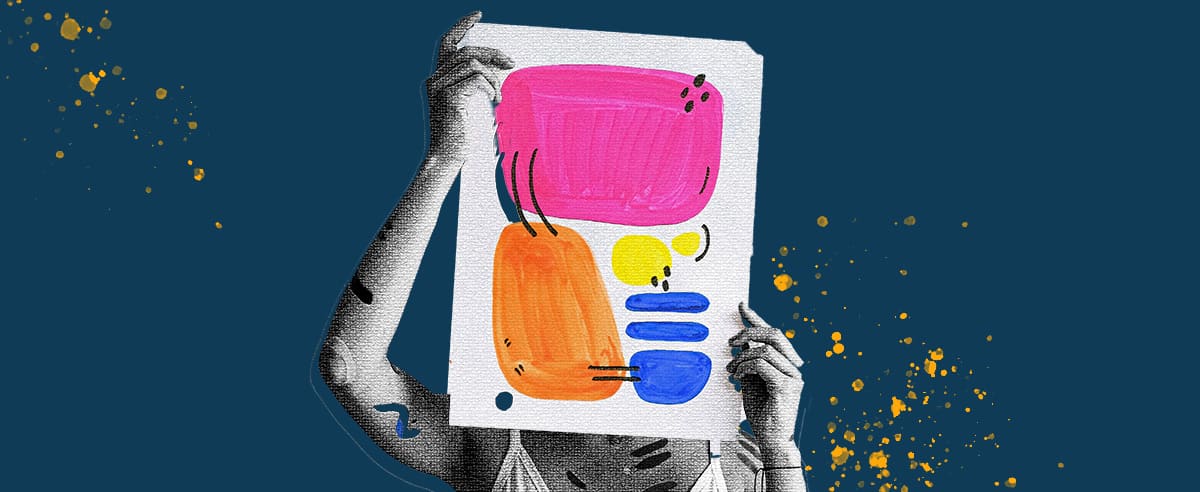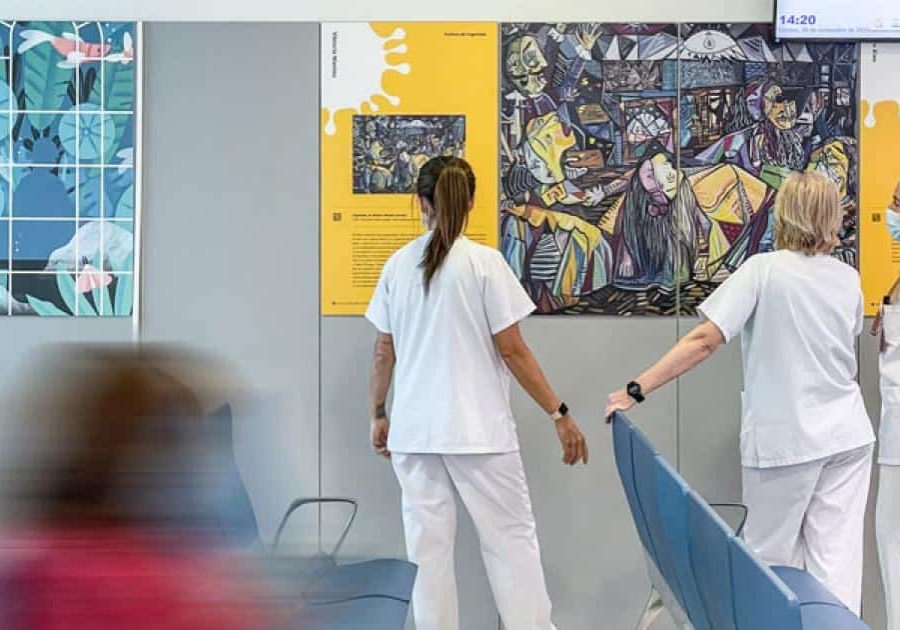How can culture and art contribute to our health and wellbeing? For some, paintings, music, dance and other forms of arts and culture might go unnoticed, for others they are a central part of life. We are surrounded by the influence of cultural activities and it can often shape the way in which we live and play. Research has shown that artistic interventions can have a significant impact on our health. From alleviating risk behaviours through reading, to the power of music in promoting social engagement and connectivity, which in turn can reduce stress and anxiety. Juan Alberto García de Cubas walks us through the Cultura en Vena Foundation - an initiative that aims to improve people's lives by injecting culture in places where it does not usually reach.
The relationship between culture and health dates back to the Palaeolithic era. But post-pandemic, both culture and health have taken on new meanings that place them at the top of our scale regarding activities that we value. In the case of health it is obvious: we now consider our health a more precious commodity than ever before. But what about culture? For some, its consumption during lockdown became as necessary as exercising, eating a healthy diet, or taking care of emotional aspects. For some culture became a therapeutic element that cushioned the devastating effects of the pandemic.
In addition to this, the World Health Organisation for the European Region, the European Commission, and countless scientific studies legitimise the use of the arts as an accessory in clinical treatments to improve people’s health and wellbeing.
Empowering programmes
Ambulatory Art is a programme of travelling exhibitions set up in hospitals and rural communities. Its contents are fully accessible to these new users, with whom a novel relationship with cultural action is proposed. We work together with cultural mediators that are trained and hired by Cultura en Vena to establish links with the programme’s beneficiaries.
The MIR project is a programme with a threefold social impact: clinical research, humanisation of healthcare and job creation among young musicians. Between 2016 and 2019, 46 classical, jazz and flamenco musicians were hired to offer live performances in hospitals. The first implementation was carried out with the collaboration of the 'Hospital 12 de October' in Madrid. Musicians' work served as an adjuvant to the care provided by doctors, improving the prognosis and health outcomes of patients.
Vūlnera: caring for those who care for us. This is a programme of cultural experiences, aimed at and curated for health professionals. This initative was created to help alleviate the physical and mental overload many in the health sector still experience as a consequence of the COVID-19 health crisis. Through alliances with leading cultural institutions, the programme currently offers guided and interactive visits to the Museo Nacional Thyssen-Bornemisza museum, and concerts preceded by talks at the Escuela Superior de Música Reina Sofía school of music, among others.
Culture for health
Another initative that was curated by Cultura en Vena was through the Culture for Health project - a combined effort of local and regional actions in Europe that is growing awareness about the critical role of culture and the arts in improving health and wellbeing at both the individual and collective level.
The 'Goya in a hospital' artistic idea combined images from the Spanish artist with texts created specifically to connect the patients to their own personal experience. The idea was to reframe illness as an opportunity, as a time to unleash affection, and to view recovery as a time for self-knowledge. The cultural experience worked to improve the health and wellbeing of that person by taking the patient on a personal journey, along with their family, and medical staff, to provide positive approaches and coping mechanisms during times of crisis.
How important are the arts to our health?
The reader may be wondering: but is it really a priority to include culture in health policies, when health systems have other more urgent needs? Today’s medicine is going through a prodigious stage of development. Now for the first time in history health personnel handle the most advanced health technologies and the most precise pharmacological treatments.
But all this needs to be balanced with other more holistic approaches. Approaches that cover the humanisation* of treatments, and which look at the whole person, considering their physical, social, and emotional wellbeing.
In 2022, the Culture for Health project reported that a holistic approach offered by cultural activities can help shift the focus away from specific illnesses to a broader understanding of health. In this way, culture supports health and wellbeing at the individual level (supporting physical and mental health, and subjective wellbeing), at the community level (supporting social inclusion, and engaged, resilient communities) and at the economic level. Similarly, cultural participation can also reinforce active (health) citizenship, supporting patients when developing their own health strategies, stimulating conversations around different medical options and strengthening the relations between citizens and health policymakers.
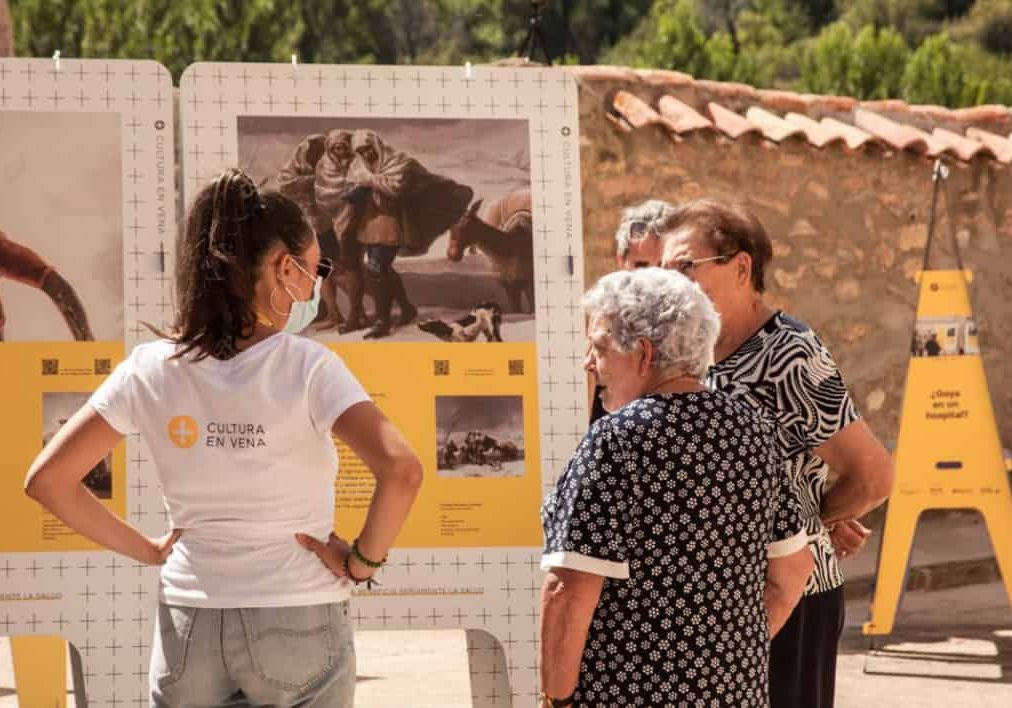
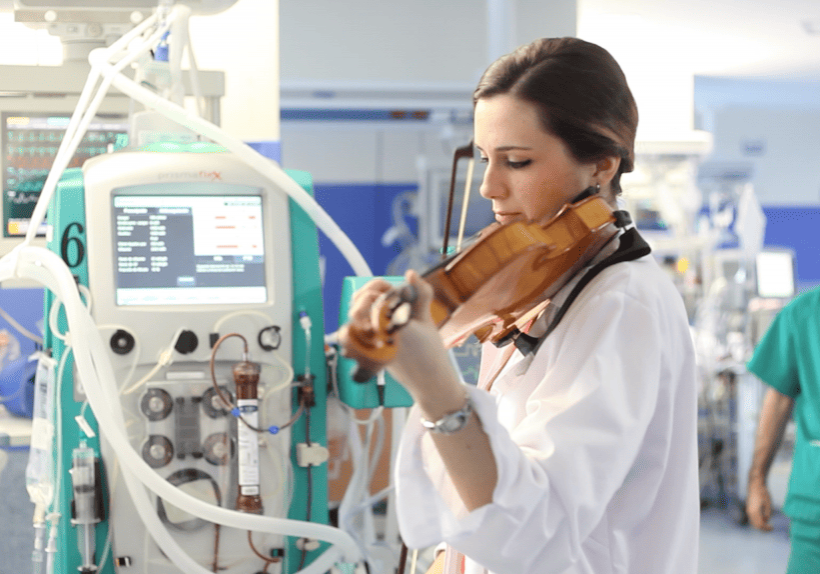
Changing the system
At this unique point in time, we are presented with the opportunity to rethink the role and purpose of both culture and health systems in society. We must now bring these two worlds together to create a new approach that includes both. This systemic change will broaden the knowledge and duties of both sectors - health services will have to see the arts as an ally in medical care, and the culture industry will have to be aware of its responsibility towards the health of citizens. In this way, we will begin to consider the cultural sector as a public health resource, and hospitals as places for cultural action.
That is why, with this article, we wish to build alliances that will help us to create the healthcare of the future together - a healthcare where culture is an indispensable element of its DNA.
The future of healthcare
As a collaborator of the Cultura en Vena project, Consuelo Artero-López, Coordinator of the Humanisation* Plan for the Public Health System in Andalusia, at the Ministry of Health and Consumer Affairs, explains the significant contribution that the arts and cultural sector can make a to a person-centred care strategy - empowering individuals to make more informed decisions about their own health and healthcare.
The Culture en Vena Project is a 'Triple Aim' project, revolving around three main objectives:
- Improve the patient experience (increased satisfaction and quality in the healthcare journey).
- Improve the professional experience (in which healthcare professionals incorporate culture and art as agents of health).
- Generate employment (considered a humanised best practice that also helps reduce costs to the healthcare system through an alliance with a foundation).
So far, the evidence-based medicine model has been a constant reference in the work of healthcare professionals. However, the value-based medicine model, focused on quality rather than quantity of care, is now emerging quickly in Andalusia. This innovative kind of approach to care is promoted by the Regional Ministry of Health and Consumer Affairs of Andalusia.
The Humanisation Plan for the Public Health System in Andalusia aims to promote the development of person-centred humanisation strategies and improve working conditions for healthcare professionals.
In May 2022, a collaboration agreement was signed between the Andalusian Health Service (SAS) and the Culture en Vena Foundation, with the purpose of using culture (exhibitions, music, concerts, etc.) to humanise the stay of patients in Andalusian healthcare centres.
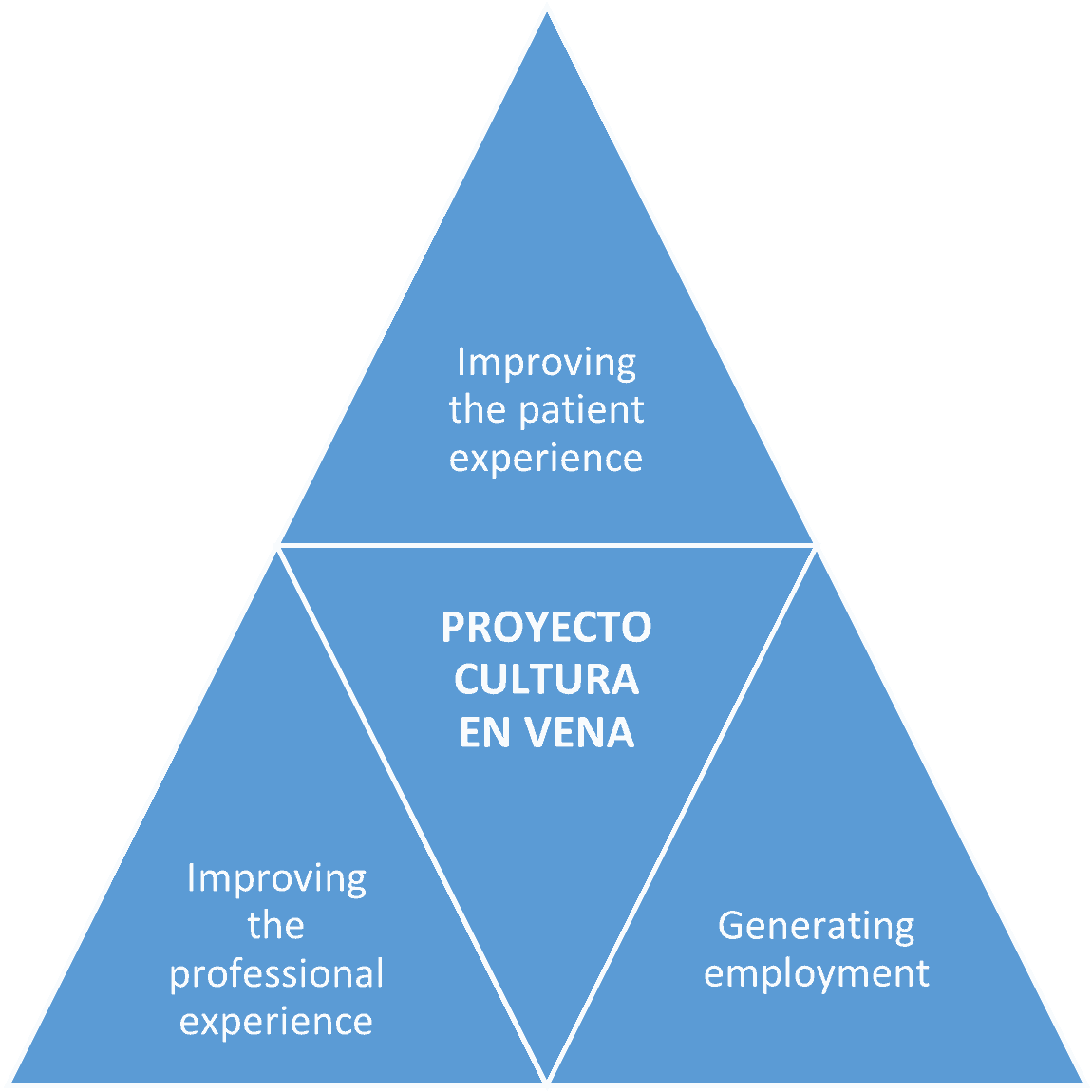
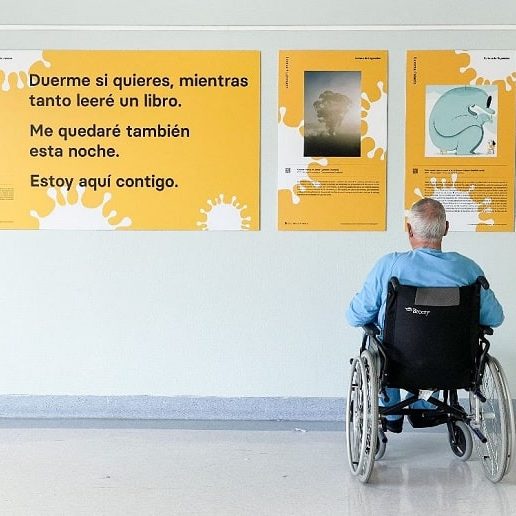
*In this article the term 'humanisation of care' refers to the supportive, empathetic and dignified provision of care, including being considerate and respectful of the person's decisions and values.

Juan Alberto García de Cubas
Juan Alberto García de Cubas is an architect, museographer, cultural manager and social
entrepreneur. For over 20 years he has been running El Taller, an exhibition design studio that
works in Spain's leading cultural institutions, and Lo Otro, a music curatorial office specialising in
finding new ways of exhibiting music. After a decade of experience bringing music to hospitals, in
2019 he created the Fundación Cultura en Vena, dedicated to bringing the arts to the health sector
and rural communities at risk of depopulation.
